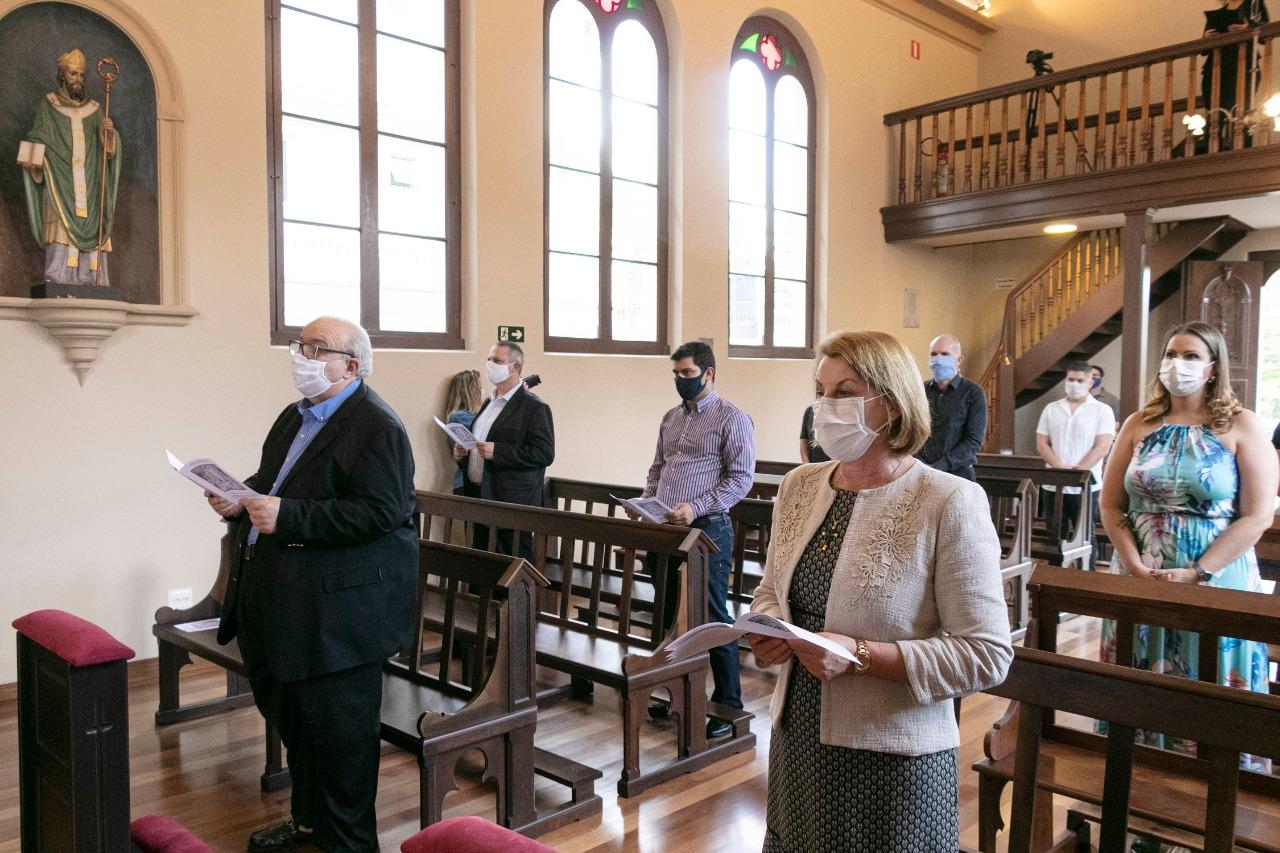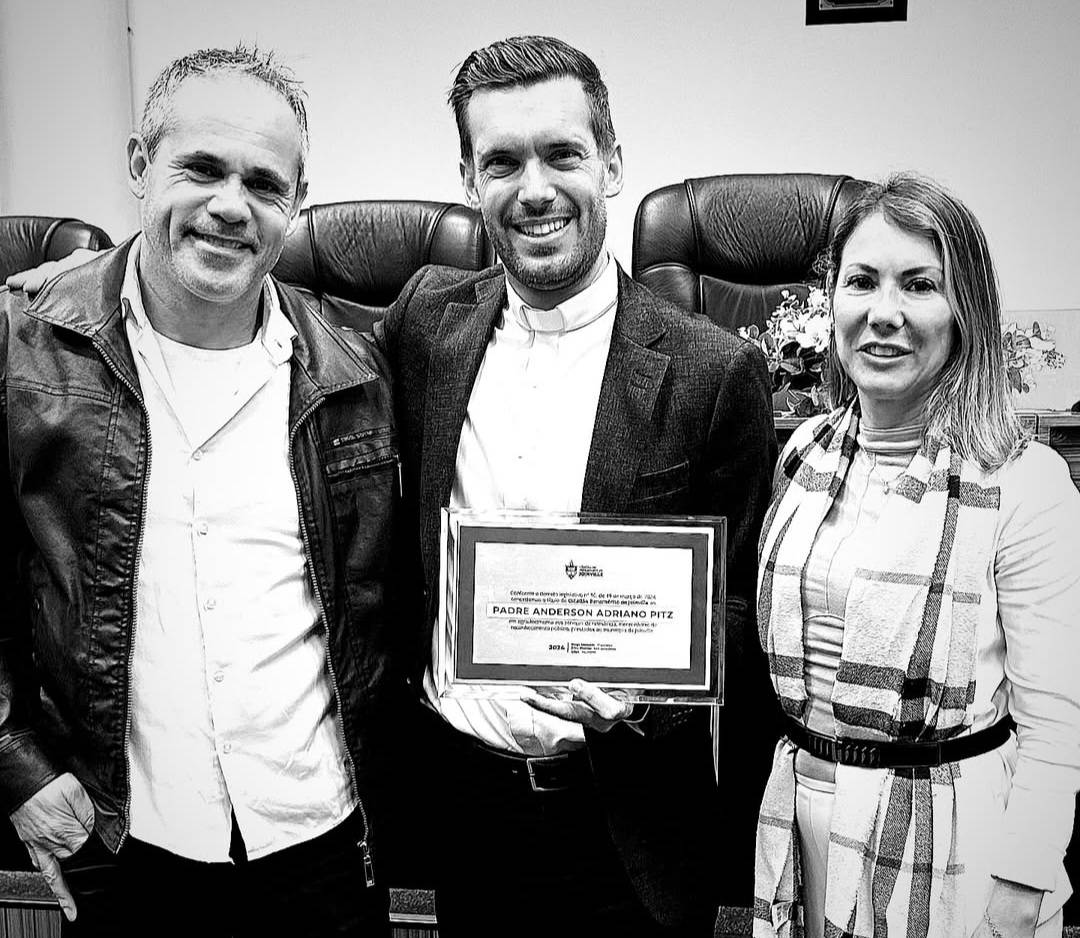SÃO PAULO – In March, dioceses all over Brazil gradually suspended masses and celebrations to avoid the further spread of the COVID-19 coronavirus. The Bishops’ Conference supported and reinforced the need to interrupt in-person activities and most churches remained closed even when a few states decided to allow worship services to resume.
However, over the past few weeks, members of Catholic traditionalist groups have been organizing campaigns to put pressure on bishops to reopen churches. A petition promoted by the conservative Institute Plinio Corrêa de Oliveira – named for the founder of the Society for the Defense of Tradition, Family, and Property – has already gathered 8,800 supporters.
In the letter that introduces its petition, the Institute said that “the current Chinese plague, the coronavirus, risks taking us to a situation that goes far beyond the health crisis.”
RELATED: Catholic reactionary group raising its profile ahead of Amazon synod
The document lists the negative consequences of the suspension of Church activities for religious life and questions the need to establish such harsh restrictions, given that other segments of society are still being active. It also mentions the historic example of Saint Charles Borromeo, who was the archbishop of Milan during the outbreak of a plague in the 16th century.
“He appealed for private and public prayers; preached the assistance to the sick; promoted three general processions to ‘appease the God’s wrath’; and preached about how sins attract divine punishment,” the IPCO letter reads. “This way, the plagues were not only a punishment, but also an opportunity for conversions.”


According to José Carlos Sepúlveda, a Portuguese-born associate of the IPCO, the Brazilian media has been promoting hysteria in the country and the actual number of victims of the COVID-19 – more than 9,000 died so far – is unknown, given that the numbers are being “manipulated.”
“If we check data, we’ll see that the number of deaths caused by transmissible respiratory illnesses in previous years is higher than the current numbers, so there’s no reason for panic,” Sepúlveda told Crux.
According to data from the Ministry of Health, however, COVID-19 was the main cause of death in Brazil in the last 10 days of April, killing more people than car accidents, heart attacks, and strokes.
Sepúlveda says, nevertheless, that Brazilians are living under a kind of “health totalitarianism,” a process that may end up resulting in the total control of the Church by the State.
“I’m worried because I think that the pandemic is an excuse for implementing a political agenda that includes a bigger presence of the State, stronger State control of the citizens’ lives, and the socialization of the economy,” Sepúlveda said. “Such a platform is, in many elements, similar to the agenda that the left-wing have wished to implement for a long time. We’re living in the days of China without a shot being fired.”
Since the beginning of the pandemic in Brazil, President Jair Bolsonaro has refused to federally impose social distancing measures and has many times criticized Brazil’s state governors and city mayors who have implemented local restrictions. He has been defending what he calls a “vertical confinement,” in which only the elderly and other members of high-risk groups would have restrictions placed on their movement.
RELATED: In Brazil, Church at loggerheads with president over coronavirus stance
Bolsonaro’s biggest worry is the economic impact of the quarantine and he has called for people to go back to work several times.
Important Evangelical pastors who lead churches with millions of members, such as Bishop Edir Macedo (founder of the Universal Church of the Kingdom of God) and Pastor Silas Malafaia (founder of the Assembly of God affiliated church Victory in Christ) have sided with the president, and a considerable part of Bolsonaro’s Evangelical constituency have rejected social distancing measures.


Sepúlveda doesn’t care about the possible identification of conservative Catholic groups as the IPCO with the Evangelicals’ position.
“I don’t see any problem in it. Such leaders have been more assertive than the Church. They’re gradually occupying places that belonged to the Church due to its own omission,” he said.
Sepúlveda’s biggest concern is what he sees as the collaboration of the Brazilian episcopate in a process that is “putting the Church to the side.”
“In effect, Catholics are without sacraments and ecclesial authorities are not requiring [anything to secure] the people’s spiritual health,” he said.
At the end of April, a few dioceses and parishes in Brazil resumed Masses after the State authorities allowed them. That was the case of the city of Florianópolis, in Santa Catarina State. But a large majority of the Catholic churches continue to be closed, with Masses being broadcasted over social media.
The National Conference of Bishops of Brazil (CNBB) has from the start called for people to stay home.
Due to its stance, members of several conservative Catholic groups have repeatedly accused the bishops’ conference of being “communist,” a common insult directed to Bolsonaro’s opponents and critics.
“We’re living what I’ve been calling a multi-pandemic. Besides the health issues and the economic and political problems, there’s the pandemic of information,” Bishop Joel Portella Amado, CNBB’s secretary-general, told Crux.
“With so much information circulating, news and fake news side by side, we can see a bit of everything on the internet. That’s why small groups end up gaining media relevance,” he said.
Amado stressed that CNBB’s decision is strictly connected to the health crisis.
“We’re not hurting evangelical principles. We’re living an exceptional situation, a health crisis. There’s a difference between the desire to attend a Mass and the possibility of attending one,” he explained.
Indeed, the measures taken by most dioceses in Brazil and endorsed by the CNBB seems to have had positive impact on the progress of the disease in the country.
A study conducted by the Federal Center of Technological Education of Minas Gerais along with the Brazilian Society of Catholic Scientists showed that the suspension of Masses may have reduced the number of cases and deaths in the country by 2.6 percent. The study claims the number of hospitalizations during the peak of the pandemic was 9.7 percent lower due to the Church’s decision.
The problem is that part of the Catholic population seems to mistrust scientific information. A general feeling of insecurity generated in the contemporary world, said Amado, has been amplified with the coronavirus pandemic.
“People desire some kind of safety, including the one provided by ideas and certainties. The problem is when the insecurity level leads to such a degree of [mental] closure and people don’t want to listen to any argument,” the bishop said, adding that dialogue with the protesting groups would be difficult.
“It’s easier to accuse than making an effort to rethink one’s convictions. It’s not about losing one’s identity, but being mature enough to listen to different arguments and being able to discern. This applies to the accusation that the CNBB is communist and to so many other situations,” he said.
“Living the faith is not to be restricted to sacramental participation. It’s should be connected to the other realms of life – and especially to the love which is practiced. We’re nurtured by the sacraments to live God’s love and the love for the others through solidarity,” Amado said.
The bishop said that he has been speaking daily to bishops all over the country about the best ways to deal with the current emergency.
“Everybody is concerned in assisting the people in the best possible way, balancing the sacramental experience and the preservation of health,” he said.
















